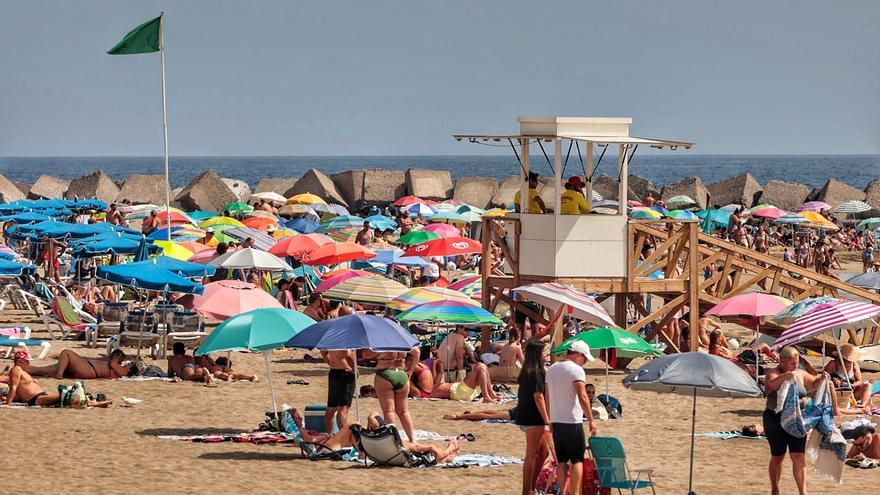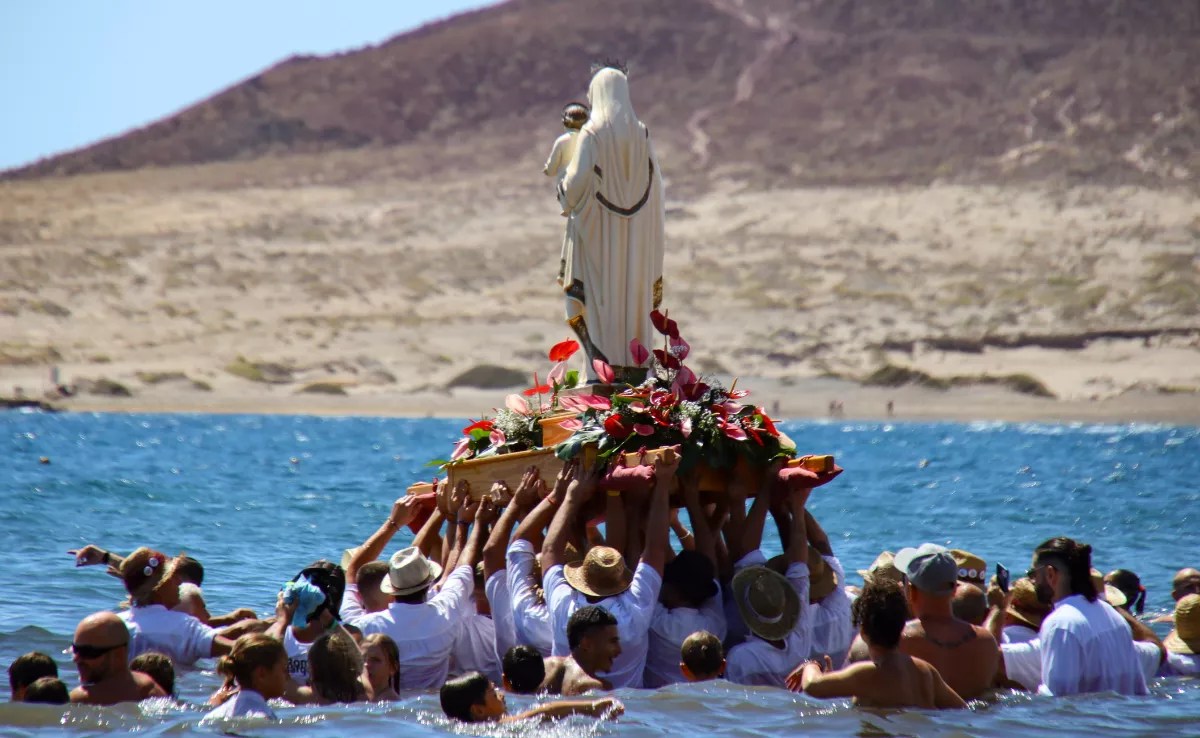
The Insular Water Council, the governing body dealing with the water scarcity emergency in Tenerife, has included among the 75 measures to be implemented to combat it, a provision stating that tourist establishments, including holiday homes, will have to pay more for water compared to residents and agricultural producers. For the first time in history, the Cabildo will take control of the water supply, prioritising human consumption and the agricultural sector. The insular president, Rosa Dávila, stated regarding this measure: “It cannot be that in this situation, golf courses pay the same price for water as farmers and livestock breeders”. This exceptional period will last for six months, extendable for another six, after the study of allegations whose deadline is next Wednesday, 15. Measure number 13 explicitly states: “Propose to the Town Councils of Tenerife and Balten (a company managed by the Cabildo that oversees the Island’s reservoirs) the differentiation in tariffs for tourist use in the network, including holiday homes”.
Dávila emphasises the significance of “a brave decision in a time of emergency”. She highlights that in the current insular government’s ten-month term, “we are making important decisions”. The nationalist political representative states that “certain actions could have been taken much earlier, but it required courage and determination”. She clarifies that “we have been experiencing the drought for two years, but it is now that we have declared the emergency and implemented a very significant package of measures”.
Four-year threshold
[–>
Regarding the reasons, the president explains: “We are doing this to avoid water supply issues in the next four years”. She also details that “this emergency declaration includes various measures: a significant financial investment, improvements in infrastructure, and a roadmap prioritising services that benefit the populace and the agricultural sector”. Regarding the collaboration sought from the private sector, particularly the tourism industry: “All companies we contacted have committed to making surplus water available to residents and the agricultural sector and to increasing production using their own resources”. Rosa Dávila concludes: “It cannot be that in a water scarcity emergency situation, golf courses pay the same price for water as Tenerife’s farmers and livestock breeders”. The Minister of Natural Environment, Blanca Pérez, estimates that tourism accounts for 10% of water consumption on the Island. She believes that “we must make an effort to ensure our most powerful industry has the water it needs, but paying the appropriate price”. The president concludes: “For the first time, the Cabildo de Tenerife is taking control of the water supply to prioritize the consumption network for Tenerife residents and those reliant on the agricultural sector”.
Raising Awareness
[–>
The main objective in the medium term is to “raise awareness among the population to ultimately reduce the current average consumption of 200 litres per person per day to 150,” as stated by Blanca Pérez, Minister of Natural Environment. The Insular Water Council suggests that residents on the Island must get involved and avoid wastage because water availability is not infinite, especially now. Hence the idea of reducing consumption by a quarter because “survival is possible with 150 litres and even less if certain measures are taken”. Long-term efforts will target municipal networks to address the significant issue of leaks in the network, which can amount to 60% in some municipalities.
Other Actions
[–>
Noteworthy among the proposals is the suggestion to the Town Councils of the Isla Baja to consolidate the supply and sanitation services and have them managed by a specialised company, whether public, mixed, or private. Minister Pérez acknowledges the “logical concern” regarding the drought situation but also recognises that “courageous measures” have been taken within the legal framework that allows for the water scarcity emergency.
Taking the Bull by the Horns
[–>
Pérez appreciates that the Cabildo de Tenerife has taken the initiative and decided to regulate water flows according to their source. She announces that “we will soon make more water available for agriculture, approximately 30,000 cubic metres”. This will be done “by regulating the flows; in other words, we will compel industrial areas in all low-lying areas where there is water to consume and irrigate with it, particularly with regenerated water”. Those located at higher altitudes “will be reserved for the midlands”, she concludes.
Collaboration
[–>
The water scarcity emergency opens avenues to achieve set objectives. For instance, major companies have the authorisation and means to produce more water and then inject it into nearby areas where it is needed, such as the Valley of La Orotava or the Northeast. Blanca Pérez emphasises that “it is not about imposing, especially when all companies have made themselves available”. She explains that “their current authorisations are for self-consumption, and they would need to be modified to integrate this water into the system”. The declaration will facilitate regulating flows and the distribution of water to where it is needed.
[–>














